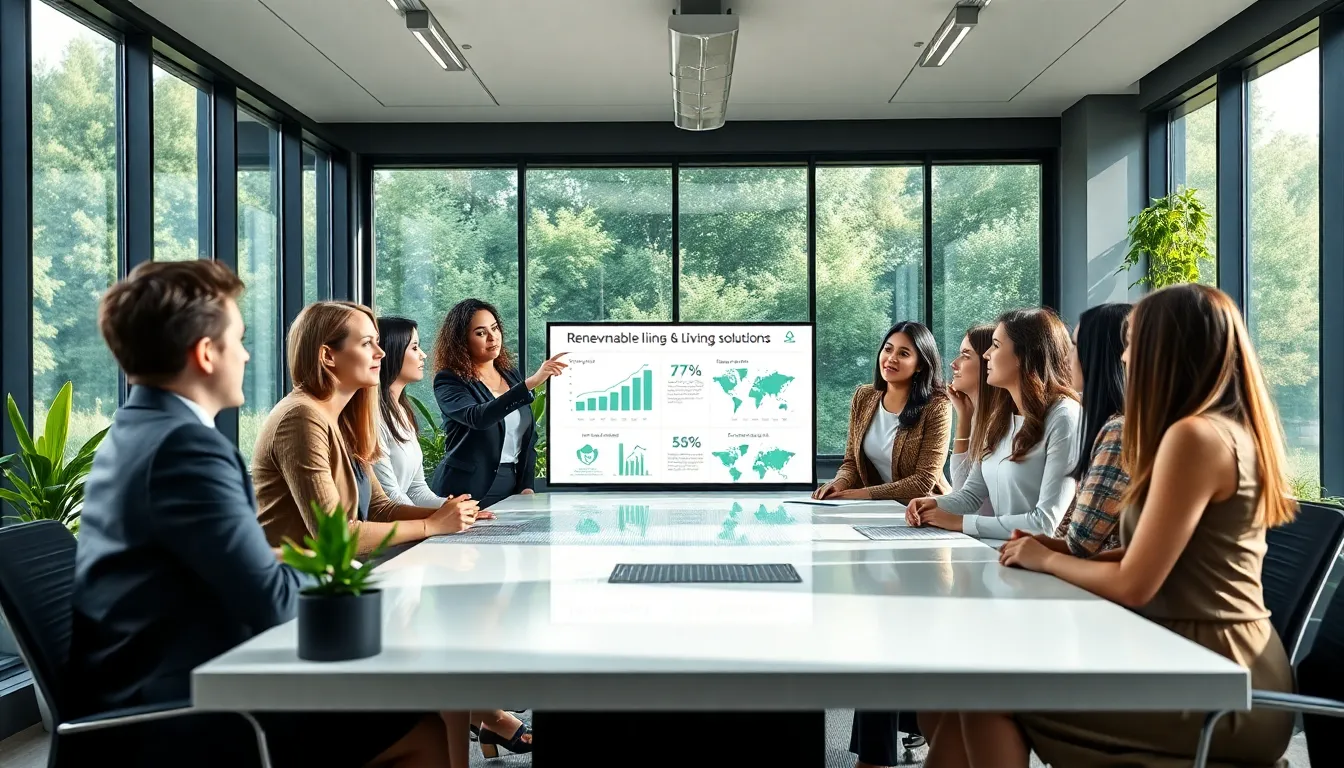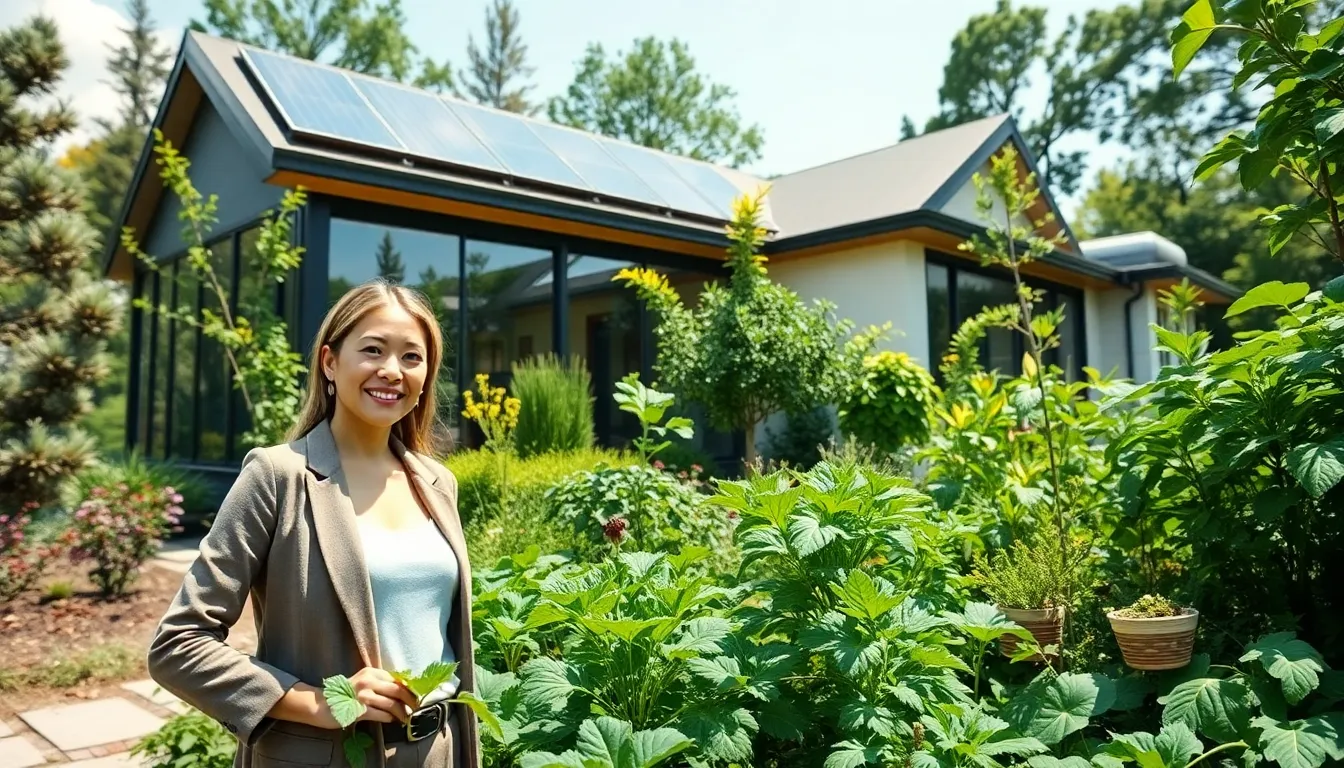In a world where the environmental clock seems to be ticking faster than ever, sustainable living solutions are not just trendy, they’re essential. Imagine reducing your carbon footprint while getting more sunlight in your day. Yes, it’s possible. With a sprinkle of humor and a dash of practicality, this guide will equip them with all the necessary tools to tackle sustainability, one eco-friendly choice at a time. Let’s jump into the world of living green and maybe even save a few polar bears along the way.
Table of Contents
ToggleUnderstanding Sustainable Living

The Importance of Sustainability
To grasp sustainable living, one must recognize its foundational importance. Sustainability ensures that our planet can thrive not just today, but for future generations. It’s all about meeting present needs without compromising the ability of future generations to meet theirs. This concept encompasses everything from conserving natural resources to promoting social equity.
Environmental Impact of Unsustainable Practices
On the flip side, unsustainable practices have dire consequences. Think of the garbage piling up in landfills, the air thick with smoke from non-renewable energy sources, and water sources running dry due to excessive consumption. Unsustainable living habits result in biodiversity loss, climate change, and significant pollution. It’s a ticking time bomb, and the longer it waits, the harder the explosion will be to manage.
Key Principles of Sustainable Living
Energy Efficiency in Daily Life
Energy efficiency is a cornerstone of sustainable living solutions. Simple actions, like turning off lights when they’re not needed or switching to LED bulbs, can yield significant savings in energy consumption. Smart appliances, designed to use less energy while delivering the same performance, also play a critical role.
Water Conservation Techniques
Water conservation might sound trivial, but it’s an integral part of sustainable living. Techniques such as fixing leaks promptly, installing low-flow faucets, and collecting rainwater can minimize water wastage. Every drop counts: building a culture of water awareness can significantly contribute to a sustainable future.
Waste Reduction Strategies
Composting and Recycling
The fate of waste lies mainly in your hands. Composting can transform kitchen scraps into nutrient-rich soil, reducing landfill waste while enriching gardens. Recycling takes it a step further, by sorting materials efficiently, they can help conserve resources and energy. If every individual participated, the impact would be monumental.
Choosing Sustainable Products
Not all products are created equal. Voting with wallets by choosing sustainable and ethically-produced options can shift market dynamics. Look for certifications like Fair Trade or organic labels: these indicate a commitment to environmental standards. It’s not just about what you throw away: it’s also about what you bring home.
Incorporating Sustainable Practices at Home
Creating a Sustainable Garden
Starting a sustainable garden doesn’t require a green thumb, just a little knowledge and commitment. Companion planting, organic fertilizers, and native plants contribute to a thriving ecosystem right in the backyard. Plus, there’s nothing like fresh veggies that are pesticide-free.
Adopting a Minimalist Lifestyle
Minimalism isn’t just about decluttering physical space: it’s about making room for meaningful choices. By reducing consumption and prioritizing quality over quantity, it leads to decreased waste. A minimalist lifestyle often aligns perfectly with sustainable living, allowing one to focus on what truly matters.
Community Involvement and Education
Supporting Local Initiatives
Community plays a pivotal role in fostering sustainable living. Supporting local farmers’ markets, cooperatives, and environmental groups strengthens the region’s economic fabric while promoting sustainability. Participation creates a network of like-minded individuals excited about green initiatives and community enhancement.
Advocating for Sustainable Policies
Policy changes are vital for widespread progress. Engaging in advocacy, whether by voting or participating in local councils, can push for necessary environmental regulations. By speaking up for sustainable policies, they can contribute to a more resilient and eco-friendly society.




